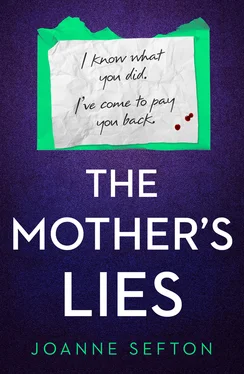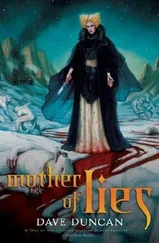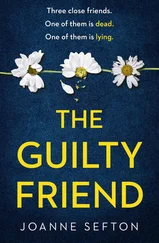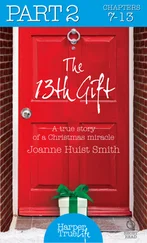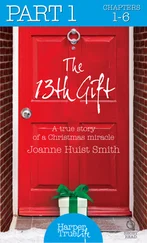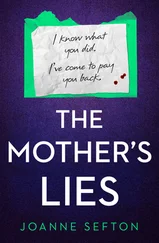‘For the sake of the family, though,’ the officer tried again, waving towards a large white estate car, painted with the letters ‘POLICE’. Katy supposed that Etta was inside.
‘Mrs Gardiner is here to try to find her child, not to see Katy Clery humiliated. You can put the handcuffs away.’
Katy wasn’t so sure that she agreed with Mr Robertson on why Etta Gardiner wanted to be there, but the policeman finally did as he was asked. A few of his colleagues had made their way over during the discussion, and Mr Robertson exchanged pleasantries with the inspector in charge. The plan was that they would initially walk across the site onto the adjacent farmland, to the vicinity where it was believed that Katy must have accessed the site a year earlier, coming from the railway station. Katy turned and walked with them, keeping close to Miss Silver so as to not give the police any excuse to pull out the handcuffs again. None of the adults talked to her, although she was all they were talking about.
A few seconds after they had passed the motorway patrol car, she heard its door open and the rustle of a passenger getting out. Risking a glance back, she saw she had been right. It was Etta, not in fur this time, but instead in a black, shapeless dress and jacket, a dark-dyed straw hat pressed low on her brow. Their eyes met, and for a moment Katy thought she saw sadness rather than anger. Then the woman turned deliberately to one side, away from the constable at her shoulder, and spat coolly onto the tarmac. The hatred, when she lifted her eyes back to Katy, was clear.
Katy fought back the tears prickling behind her own eyes and continued to walk forward. Soon the police started to slow. They were nearing the edge of the site. The tarmac of the car park ended, and there was a thin strip of scrub before a wire fence. Someone had cut a gap. There was a neat roll of fencing wire stacked to one side – ready to fix it quickly so everything was shipshape for the grand opening, she supposed.
There were nettles around the fence, and as they made their way into the field, the ground became soft and uneven. Katy, now used to the confines of Ashdown with its paved yard and endless linoleum corridors, felt herself stumble. The smells of the wet earth, of the green grass, buzzed in her mind.
‘Well,’ said the inspector, suddenly turning to face back towards the service station and the motorway beyond it. ‘Do you recognise it? Are you planning to tell us anything, or just to waste everyone’s time again?’
Barbara
She held the soap out under the shower water. The jets carried away the film of dust and the creamy white surface began to glisten. She turned it over in her hands, waiting for the hot steam to release that unmistakable floral scent. Tesco shower gel was sufficient most mornings, but today something more potent seemed called for. The bar of No. 5 had been eased out of its monogrammed box and pressed into service.
I’m still me , she thought, as she worked the soap into the brown marks left on her dry ankles by her sandal straps, and then lathered up her shins in preparation for the razor. Saggier, more wrinkly and more blemished, yes. Bearing scars inflicted both by accident and design. But still, this body was recognisable as the one that had twirled in the blue dress up in Glasgow; still the same body that appeared, bikini-clad, in the Lanzarote beach photos from a few years later. Not to mention the same body seen smothered in sheets in the blotchy hospital shot from the day Helen was born. It hung on the bedroom wall even now, despite years of trying to talk Neil into taking it down.
She’d decided a long time ago that age-related deterioration in eyesight was a small mercy; those stray hairs, liver spots and discoloured veins, which would have horrified her in her youth, were easier to ignore through the forgiving blur of myopia.
I’m still me.
Her limbs were firm and strong; she’d been careful not to run to fat, though it was true her back ached now when she bent like this to shave her legs. At least the hairs grew slower than they used to, even if they compensated with random migration – sprouting witchily in unexpected places. All in all, she looked and felt in good nick for sixty-nine. That had been old-woman territory in her own mother’s day, but not any more.
Barbara remembered the paradox of the ship of Theseus – not that there’d been much in the way of the classics where she’d had her education, but she’d come across a Myths and Legends book in the library during her early days at the newspaper. It turned out that a couple of renewals brought a surprising amount of useful bullshit within her grasp. If every plank on a ship is replaced, one by one, until none of the original planks are left, is it still the same ship? Or the same axe, or broom, or human being?
It was said that our constantly regenerating cells meant no part of our body was ever more than seven years old – or perhaps it was ten? What, then, made these the same feet that had run pell-mell on terraced streets in gaping shoes? What made these the same lips that joined, shaking, with Neil’s on their wedding day? What made these the hands that, trembling with fear, had cradled newborn Helen?
It was the pattern, the mould, that was important. Just as each plank of the ship was measured, cut and sanded to fit in its position, so each cell died and another grew in its place, arranged just as before, cheek by jowl with its comrades, directed by God or DNA or both to maintain the thinness of her bottom lip, the flecks of gold in her brown eyes and the bluntness of her stubby fingers. But not any more.
‘Cancer’ is our word for what happens when the mould breaks.
Barbara lathered her breasts, lifting each one tenderly and committing the weight and tone and pucker of it to memory. Her pattern read 34C, the cells dutifully multiplying and expanding to sprout at thirteen and to swell during pregnancy, just as mandated in their instructions.
Now, though, they’d gone rogue. She had Militant Mammaries. Jihadi Jugs. The pattern had been ripped up, and right now there were thousands (millions?) of manically reproducing cells bulging into colonies of chaos, thrusting aside the law-abiding, structured tissue and making manifest the sins of the flesh.
I’m still me. She let the middle finger of her left hand creep over the Lump. Except for the bits that aren’t. She pictured the glinting edge of a scalpel. Incision. Excision. Fifteen hundred years of medicine and it still came down to this: cut the damn thing out.
When she wasn’t thinking of the cancer, she was thinking of the note. Barbara was sure that Helen’s sharp eyes had picked up on it. She’d find the others in the safe soon enough – if she hadn’t already. That girl gets her sharpness from her mother, Barbara thought proudly, even if her daughter couldn’t really be called a girl any more. There was a distance in Helen’s eyes, an uneasiness in her smile, that told Barbara she had read the note, and would be asking awkward questions soon enough. Helen’s distracted look could just be worry about the illness, especially coming on top of the business with Darren, but Barbara didn’t think so. She had a sense about these things.
Of course, the fact the notes were there didn’t mean anything would come of them. Anonymous vitriol was easy enough – just look at the internet these days. This was the curtain call for a closing act that Barbara had waited all her adult life for, but she still didn’t know if she was ready to take to the stage.
I’m still me. She muttered it aloud this time, letting the bitter soap taste into her mouth.
Still me; but so, so tired.
Читать дальше
